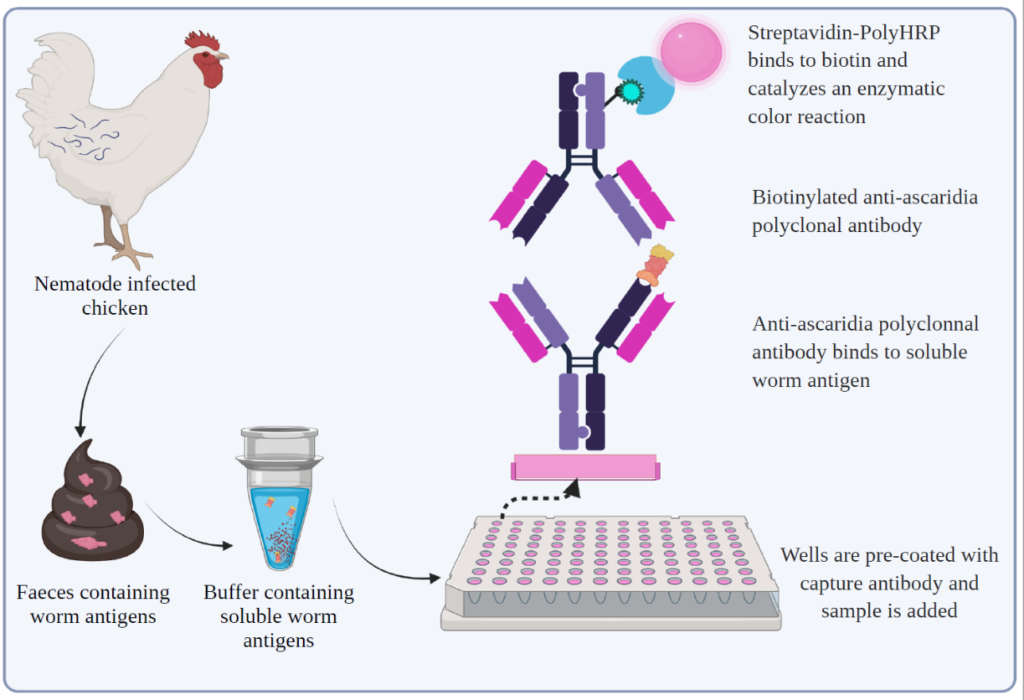ESR blog
The research led by Dr. Gürbüz Daş from the Research Institute for Farm Animal Biology (FBN) in Dummerstorf, Germany, proposes a new method (copro-antigenA worm specific substance found in the faeces of infected hosts animals. They can be used to diagnos… ELISA) for detecting parasite infections in chickens. The paper was published in the November 2022 issue of Veterinary Parasitology journal. With Oyekunle John Oladosu (ESR6) as the first author, the proposed new method (i.e. copro-antigenA worm specific substance found in the faeces of infected hosts animals. They can be used to diagnos… ELISA) is the first that uses a soluble worm antigen shed in parasite faeces to diagnose nematode infections in chickens. The method was developed together with an industry partner, TECODevelopment GmbH represented by Dr. Mark Hennies.

The new method is non-invasive, as it only requires faecal sample as biological material, it is relatively easy to use, and has a considerably high diagnostic accuracy, but the team continues to work on this method for further improvement in terms of quantitative characterization of nematode infections.

Nematode infections are a re-emerging problem that is becoming highly prevalent in European poultry farms, they limit farm’s productivity and potentially impair chickens’ welfare. Tackling nematode infections fits within the framework of MonoGutHealth which aims to improve gut health for rearing of more resilient chickens. Nematode infections threaten intestinal health, and a rapid non-invasive, animal friendly method of diagnosing ascaridsis indeed a step forward in maintaining a sustainable livestock production.
For many decades, researchers and practitioners have relied on faecal egg counting techniques to identify and quantifyascarid infections on farms and individuals, and of course, there have been improvements over the years in the accuracy and precision of the methods used for faecal egg counting. The two technics—McMaster and MiniFLOTAC—are nowadays the standard methods used. While these methods can show indication of nematode infections in faeces, they are not always reliable for many reasons that were addressed in the recently published manuscript.
As the next step, the researchers will focus on pattern of worm antigen excretion during the course of infections for a longer period of time, and compare diagnostic accuracy of the copro-antigenA worm specific substance found in the faeces of infected hosts animals. They can be used to diagnos… ELISA with the most commonly used other techniques, including classical faecal egg counting techniques and serological tools (i.e. antibody-ELISA).